These cows appear to be coming to the barn for milking. I believe they were on the farm my uncles Henry and Hugh Cleage had during WW2 as conscientious objectors. They had to milk a certain number of cows and they also had chickens. Henry was 26 and Hugh was 24 when they started farming. Hugh had a degree in agriculture from Michigan State University. They were conscientious objectors because of segregation and discrimination both inside and outside of the military. All of the training camps were located in the segregated south and the officers were all white. Henry wrote several of his stories while working on the farm, which was called “Plum-Nelly”, as in “Plum out the county, nelly (nearly) out the state”. Their farm was located near Avoka in St. Clair county, 62 miles north of Detroit.
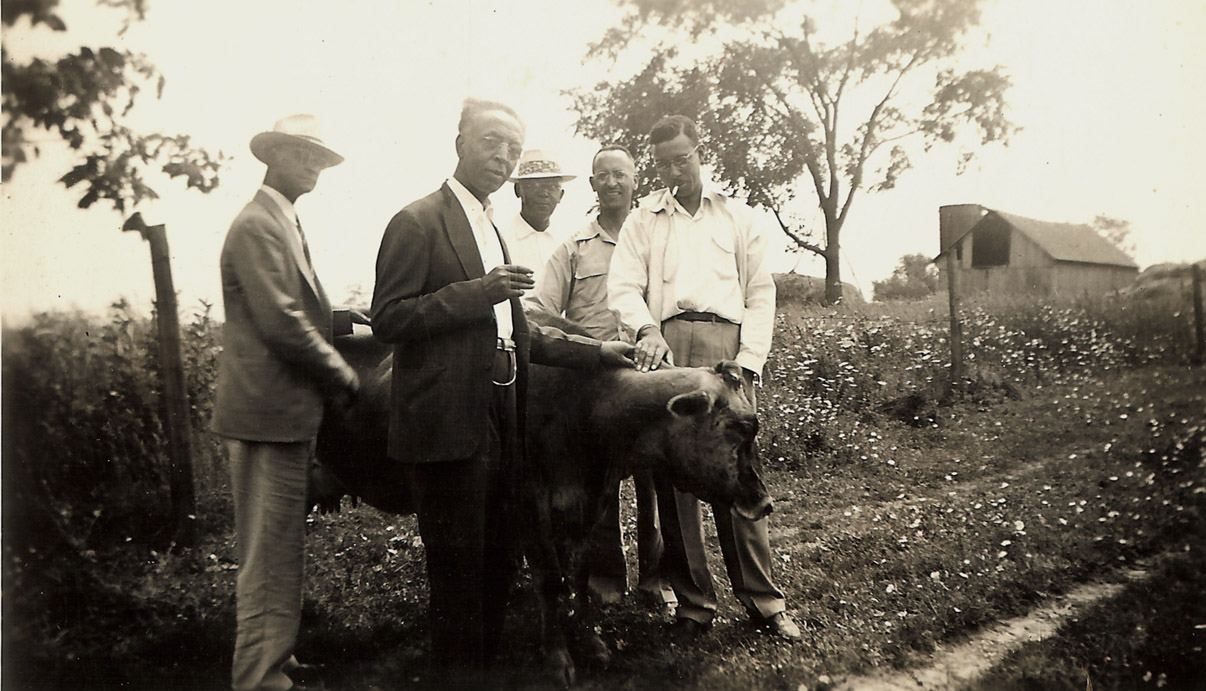
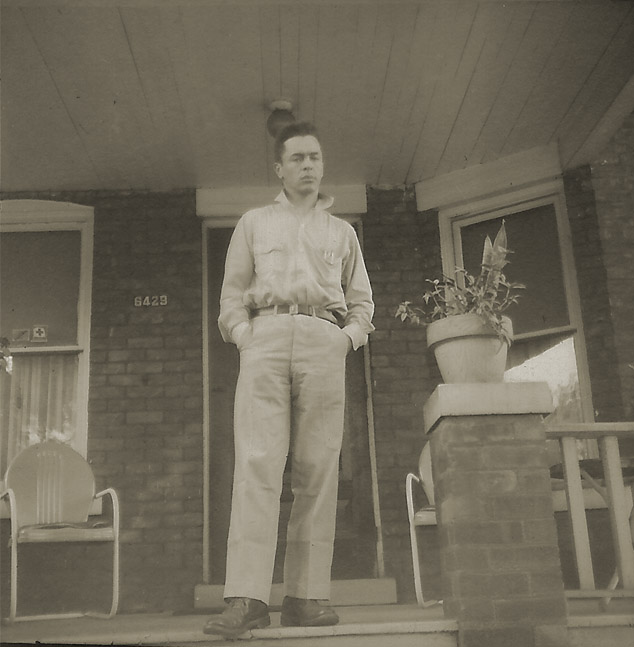
___________________
I found an interesting interview with Ernest Calloway that reminded me of talking with Henry about being a conscientious objector below. You can read the full interview here – INTERVIEW WITH ERNEST CALLOWAY where he talks about other aspects of his long and interesting career as a labor organizer.
CALLOWAY: “Of course, in the first instance, I was a conscientious objector on the grounds of racial discrimination. I had the first…mine was the first case, you know. I refused to go into the Army as long as the Army was Jim Crow. And, oh, this was a battle for about two years. Over local draft board and state appeals board. I don’t think they ever actually settled the case…I think the case is still on the files somewhere…they just forgot about it. But I had pointed out on my questionnaire, the military wanted this questionnaire that I was given, the question was asked, “Are you a conscientious objector on moral grounds?” I scratched out the word “moral” and wrote in “special”, social grounds. And then I submitted a statement to explain that on the question on racial discrimination, under no condition did I feel like I was obligated, you know, to accept service in the Army. Of course, the chairman of the draft board thought I was kidding. And I insisted to him that I wasn’t kidding. I pointed out to him that if I was going to die then I was going to insist that it be on the basis of equality, you know. And, of course, finally, finally I did. Finally, the Communists wanted to take over the case in Chicago…then I get a telegram from Walter White of the NAACP that the NAACP would be interested in pushing the case. And White suggested that I contact the Legal Redress Committee there in Chicago, at the Chicago NAACP. And I went down to meet with the Legal Redress Committee which included such people as Earl Dickerson and some of the top black lawyers, you know, in the city of Chicago. But I found myself on the defensive because they were primarily concerned on…to determine what was my political background and my attitude about war in general. At that time, I was associated with the Keep America Out of War Congress which was headed, I think, by Norman Thomas… Norman Thomas, at the time…and a number of other liberal, socialists and liberals. And after about an hour and a half of this being on the defensive, trying to explain myself, I finally pointed out to these, to the lawyers, that I’m here at the invitation of Mr. White…that he asked me to come down and said the NAACP was interested in the case… that they would like to pursue the case of discrimination in the Army, but if you fellows are not interested in this, and I do not have to explain my political, you now…political motives and that sort of thing. That I can take care of myself, you know. I know what to do to take care of myself. Then I walked out of the room and, of course, one of the young lawyers followed me and he said he felt that I was right, that he would like to work with me on the case. And finally I was called into the office of the State Appeals Chairman who happened to be a Negro. And he wanted to know what was, and, of course, evidently a lot of publicity was being given to the thing, the national magazines, the black press, and that sort of thing. As a matter of fact, we had decided to form a little organization of our own, which included Sinclair Drake, who at that time was working with Horace Keaton on that Chicago, black Chicago project, Enoch Waters who was the editor of the Chicago Defender at the time, and a number of other youngsters; we were all youngsters. That was something like… Committee Against Jim Crow in the Army. And what we had discussed was the question if we could ever get a public hearing before the Appeals Board…we could put on a show, you know. And this was what we were after, you know. So, finally, the Chairman of the Appeals Board called me into his office. And he wasn’t clear about what in the hell this thing was all about. Of course, there were two technical aspects to it. Number one, the local draft board had refused to issue me, at that time…what was called Form 47, which is the form that is supposed to be issued to conscientious objectors to build their cases, you know. And, secondly, he had denied me the right to appeal from the decision of 1-A. I couldn’t appeal from this decision. Now we used to have more damn hassles, he used to, he called one day and he said, “You think you’re a smart nigger. But you think you’re gonna come in here and mess up this draft board, but you ain’t gonna do it to my draft board.” I said, “Well, you know, when I, when they, when I registered up here at the school, they told me I should look upon my draft board as a committee of friends and neighbors, and if I had any problems, I should discuss it with them, with the draft board.” And I said, “Gentlemen, I got a problem. I ain’t going into no damn Jim Crow Army. How we gonna work this thing out?” And, oh, we would sit there and argue like cats and dogs. And, of course, I had problems with my own organization, too, which was the redcaps union. The President of the Union, Thompson, felt that this would be bad for the union. Very bad for the union, you know. But the secretary-treasurer, we…I was very friendly with the secretary-treasurer… he felt I was not handling the thing properly…that I should keep from getting into arguments with these people and play it cool and that sort of thing. I said, “Well, John, you come on over to the draft board with me. Let me see how cool you can be with these guys.” And, you know, he said, “Mr. Calloway, let’s look at it this way.”…I think what they were trying to do is change my mind… he said, “Let’s look at it this way. Two neighbors are fighting, like cats and dogs, and so one neighbor’s house catches fire, what you do is stop fighting and help the neighbor put the fire out,” he said. “You understand…you understand what I’m talking about?” I said, “I don’t understand a word you’re saying. I’m not going in any Jim Crow Army. I don’t know who’s fire you’re talking about.” But, anyway, then I explained to the Appeals Chairman the technical problems and he said, “Well, hell, they can’t do that to you.” He said, “You have the right to appeal the 1-A and you have a good case. And I don’t know anything about this Form 47 for conscientious objectors, but I’ll go and get you one of those forms.” And he was a Negro, a Negro lawyer, and he said, “These people made me the chairman of the appeals board, but I been a black, too long…been a Negro too long, you know…I think you’ve done the right thing.” He said, “I’m going to get you a…this conscientious objector thing…and I don’t know, you talk about on social grounds, but it says something about moral. But you take as much time as you want, and you put your best foot forward.” And, of course, I did work out the statement and submitted it to the Appeals Chairman. And I haven’t heard from the case since. So, that’s been from 1940, this was, of course, all of this was before Pearl Harbor. All, most of this was before Pearl Harbor.”
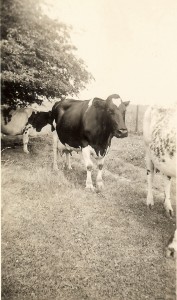
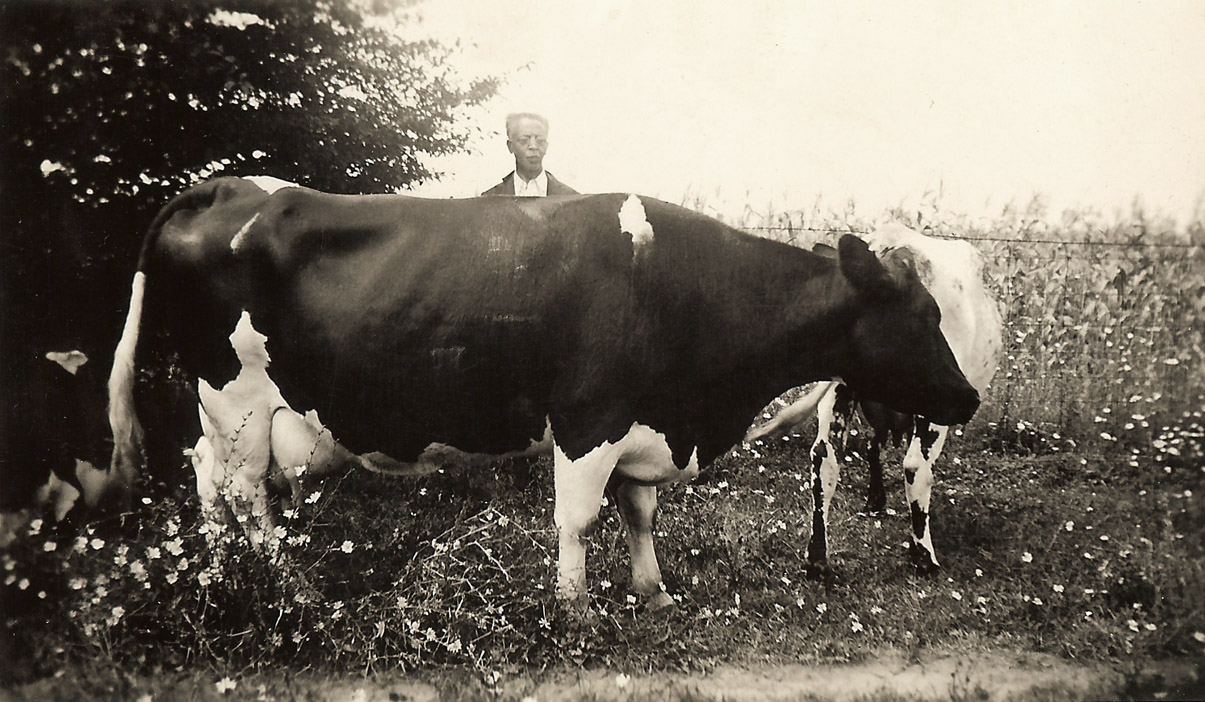

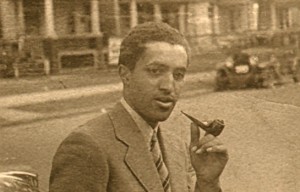
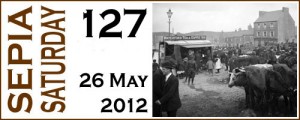
“Plum-Nelly” — I love that! And I love the spirit of someone who can think that way. The Calloway interview was interesting as well as painful to read. I always wonder how people decide which battle to fight and when to live to fight another day. And for Blacks especially — how did they know which battle might give them a minor victory and which one would leave them swinging from a tree? I don’t expect an answer — these are just questions that run through my head when I read accounts like Mr. Calloway’s.
He was in Chicago and my uncles were in Detroit so there weren’t a lot of lynchings over conscientious objectors going on. Reading his interview I got the impression he found it all pretty interesting and exciting – organizing and protesting and standing up for his rights. I know my uncle said he figured if he would never make it out of the south to be sent anywhere else to fight so for him being a conscientious objector was the way to avoid swinging from a tree.
Your family continues to amaze me! They were thinkers! It took me a long time to know myself and my values. They did it at such a young age — and better yet — they did not let the “system” intimidate them.
What do you suppose the appeals lawyer meant when he said he’d been a black too long, a Negro too long? Very puzzling. Calloways story was so interesting. Glad he never had to go to war. Good for him and your uncle too.
Nancy
The chairman of the State Appeals Board made that statement and I believe he meant that he had been appointed as chairman to the appeals board with the expectation that he would go along with the local draft boards findings but that because he was black, he understood completely what Calloway was talking about when he talked about not fighting and dying in a segregated situation. Some of the interview is confusing because they don’t seem to have done any editing to make it clear.
What an interesting piece that Calloway interview is, as are your photographs of your uncles on their farm. Clearly spirited individuals.
After reading your comment, I realized that I had not included photos of my uncles Henry and Hugh who were actually the farmers. I have added them. The photos of the men with the cows are other relatives.
To have the courage of one’s convictions in the face of what might have appeared to be overwhelming, unbeatable odds … I have great admiration for such people. I’m also impressed that they, and you, have recorded it all meticulously. I agree with Nell – the photographs bring the sentiments to life. Thank you Kristin, for sharing them.
I wish I had recorded their memories of that time.
Plum-Nelly – what a great name for a farm. The cows look very contented. The Calloway story was very interesting for men who stood by their principles.
That Mister Calloway sounds like quite the character.
Fortunate to have such people around to question the way things are,
even nowaday…
And your family pics are great, as usual!!
Glad you found those.
🙂
HUGZ
Fascinating glimpse of men with real character and courage. And by coincidence I’ve known two other conscientious objectors from the Korean and Vietnam eras, who also became labor organizers.
I know two from the Vietnam era. Both were organizers. One, General Baker in Detroit, was a labor organizer and may still be.
Great photos and stories. I admire your uncles and Mr. Calloway for speaking out and holding fast to their convictions in a time when it was dangerous for them to do so. They were brave men. You are doing a wonderful job in preserving the memories of your family for future generations.
What an amazing story again in your family’s past. What a lively devoted group were born into! Thanks for sharing the story with us! It’s good to remember…an underlining theme… never be afraid to always ask questions!
I loved the Plum Nelly name. It sounds like a name for a cow, and it reminded me of Plum Jelly. I didn’t realize all the training camps were in the segregated South.
The armed services were segregated at that time and all the training camps for black soldiers were in the south.
Very interesting. I enjoyed the photos of your farming uncles very much also.
Kathy M.